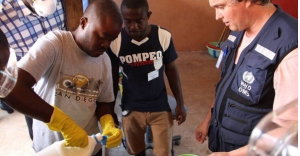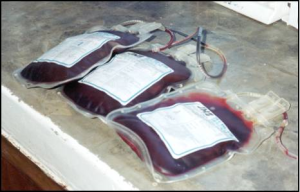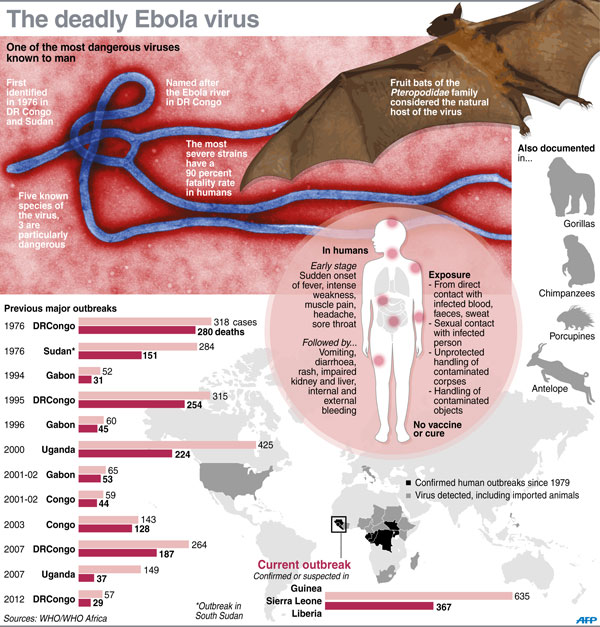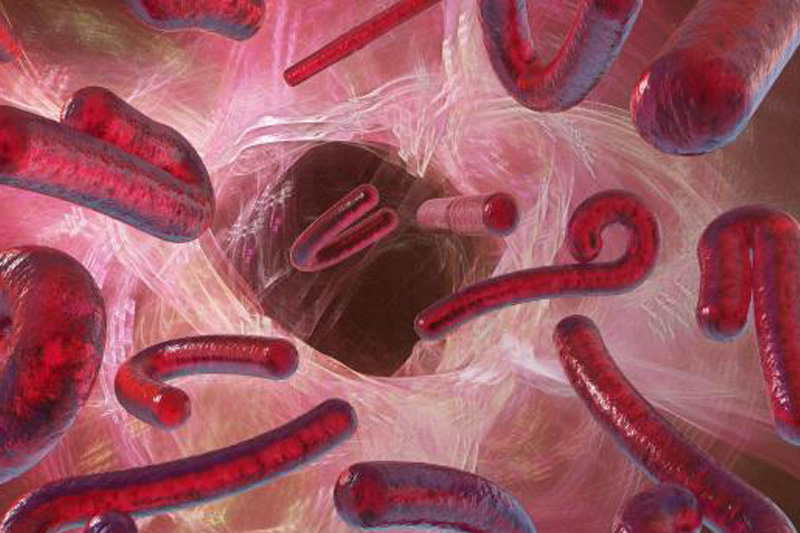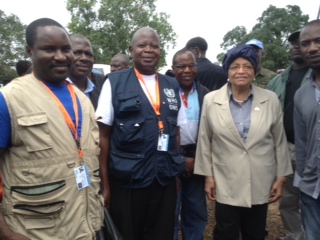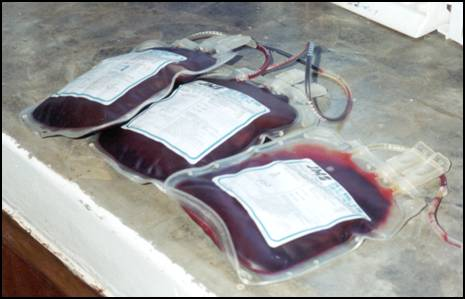
Ebola survivors giving back
Ebola is no longer an epidemic restricted in Africa, a case was diagnosed in the US last week and this week, 3 people were hospitalised in Madrid, Spain and are feared to be infected with the virus. Although there is likely to be very limited spread of the disease from these cases, Ebola is now a pandemic.
However, the world is not where it was in January this year, Ebola has forced a lot of quick action, thinking on the go which will ensure that the disease will be halted.
At the moment, between 30 to 50% of all people infected with the Ebola virus, survive. The World Health Organization (WHO) is now inco-operating survivors in the training of front-line health workers. The photo below is from the WHO website showing a Liberian Ebola survivor demonstrating some practical issues to health workers.
Learning from the survivors will enable health workers know the type of assistance patients badly need.
http://www.who.int/features/2014/liberia-ebola-survivors/en/
But that is not all, blood from those who have survived Ebola, is being used to treat people in the early stages of infection. The WHO released a document last month, September 2014, to help health workers think about therapies that involve the use of blood from people who have recovered from the disease to cure those who are sick
http://apps.who.int/iris/bitstream/10665/135591/1/WHO_HIS_SDS_2014.8_eng.pdf
In the document, the WHO outlines the type of survivor whose blood can be used for treatment, this is a person who
- 28 days have passed since discharge from Ebola treatment centre
- Showing no clinical signs or symptoms of Ebola virus disease
- Twice tested negative for Ebola DNA (testing 48 hours apart)
- Negative for HIV, hepatitis, syphilis and other blood-transmittable illnesses
The usual ABO and rhesus testing for matching is also done before transfusion. Those donors closest to the most affected areas have higher Ebola neutrilizing antibodies and their blood is thought to be most effective.
At the moment, it appears that those infected with Ebola who survive are not succumbing to the disease again. That means that people are getting solid immunity with a single infection. This is an extremely positive issue at it means that a vaccine will be highly effective. The WHO organized a meeting in Geneva 29-30th September in a push to try and get the clinical trials for 2 candidate vaccines speeded up.
http://www.who.int/immunization/diseases/ebola/WHO_consultation_ebola_sep2014/en/
No one denies that there are failures in the system, otherwise the virus would not have spread so far – however, with all fighting the virus with whatever arsenal is available, the virus will go down.


